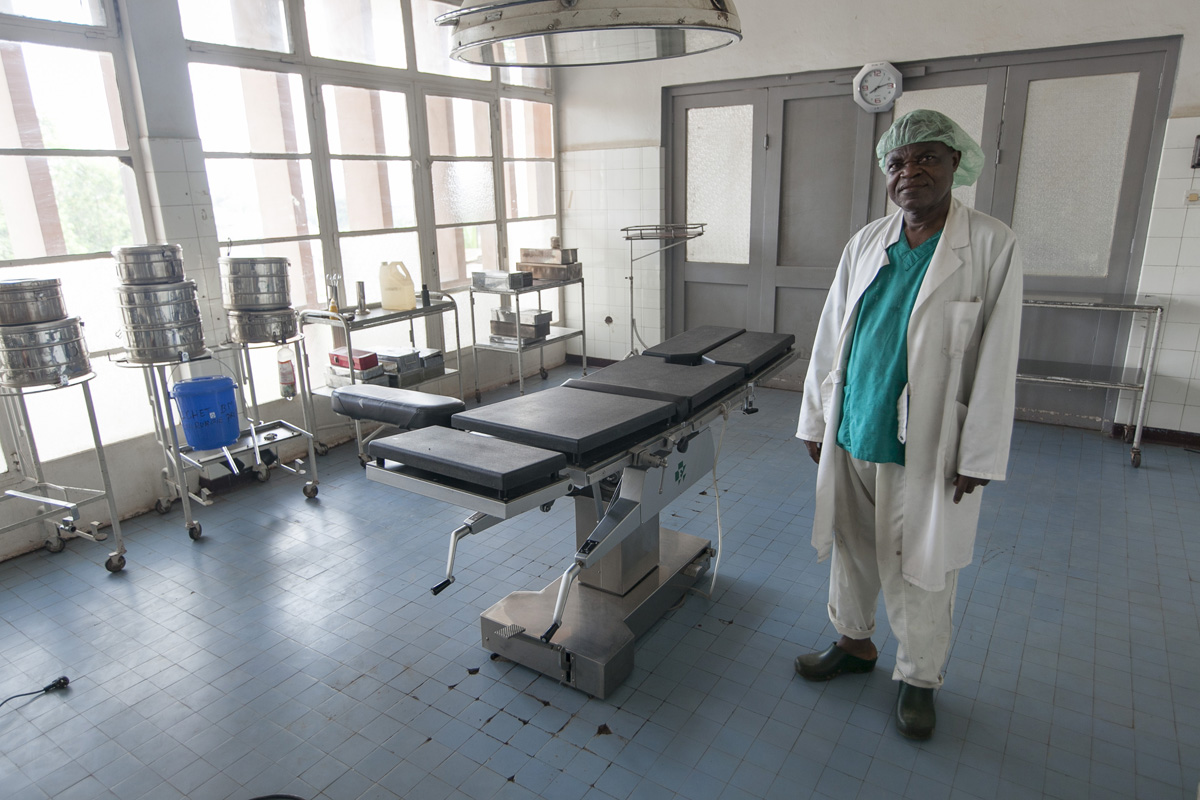Safe surgery saves lives in the Democratic Republic of the Congo
4 February 2021

The Kongo Central province in the southwest Democratic Republic of Congo (DRC) has known relative political stability for decades, but it is still battling to meet the population’s health needs. The main arterial route running through Kongo Central is busy, connecting the Atlantic port cities of Boma and Matadi with the capital Kinshasa. Road traffic collisions are significant here, leading to a high prevalence of trauma patients, who often require surgical care.
King’s Global Health Partnerships and the Kongo Central Ministry of Health have worked in partnership since 2013 at the invitation of Congolese diaspora in the UK. Our current focus is on improving trauma care (including prevention, treatment and rehabilitation) in the following areas: trauma system development, training of health care workers, research to inform policy and delivery of good quality clinical care.
Since August 2018, in partnership with the Provincial Ministry of Health and the Provincial Health Division, we have been running a Safe Surgery programme in the four main hospitals in the province (St Luke’s Hospital, Kisantu; IME Hospital, Kimpese; Kinkanda Provincial Reference Hospital; Boma General Hospital). This multidisciplinary programme- with surgeons, doctors, nurses, anaesthetists and theatre practitioners- is based on the World Health Organization (WHO) Guidelines for Safe Surgery: Safe Surgery Saves Lives. This focuses on ten key pillars for intervention including the WHO Safe Surgery Checklist, management of surgical site infection, use of pulse oximetry and good teamwork.
Together we have delivered training workshops on safe surgery and quality improvement methodology at the four sites in the province with more than 80 healthcare professionals trained. For the first time, the WHO checklist is now in use in each hospital and methods to ensure accurate swab, sharps and instrument counts have been introduced. A province wide surgical data management system has also been introduced. The programme implementation team, with the Provincial Health Division, continues to oversee this work.
The COVID-19 pandemic has had a significant impact on the world and has affected surgical care in the DRC. There was a lot of fear and misinformation initially about COVID-19. This resulted in a significant reduction in patients seeking treatment in hospital. The economic fallout has meant patients have suffered real financial hardship, which has had a knock-on effect on health seeking behaviour. Bed occupancy at one hospital that usually runs at 100% was down to 32% in recent months. Amongst healthcare workers, the lack of PPE was a real concern.
We were able to adapt our training programme to meet some of the challenges related to COVID-19. Our programme implementation team received specific training of the impact of COVID-19 on surgery and how to protect patients and staff from infection. We were also able to place specific emphasis on hand hygiene and infection prevention and control and the use of pulse oximeters during our training. These are skills within the WHO Safe surgery pillars but also crucial in preventing the spread and in the management of COVID-19.
The challenge of providing safe, affordable and timely surgery in the DRC can seem overwhelming at times but there is room for optimism. Dr Kikwate, surgeon at the Hopital General de Boma and member of the programme implementation group said, “together we can face these challenges and our aspiration to provide safe surgery is not impossible”.



0 Comments
Leave a comment
Your email address will not be published.